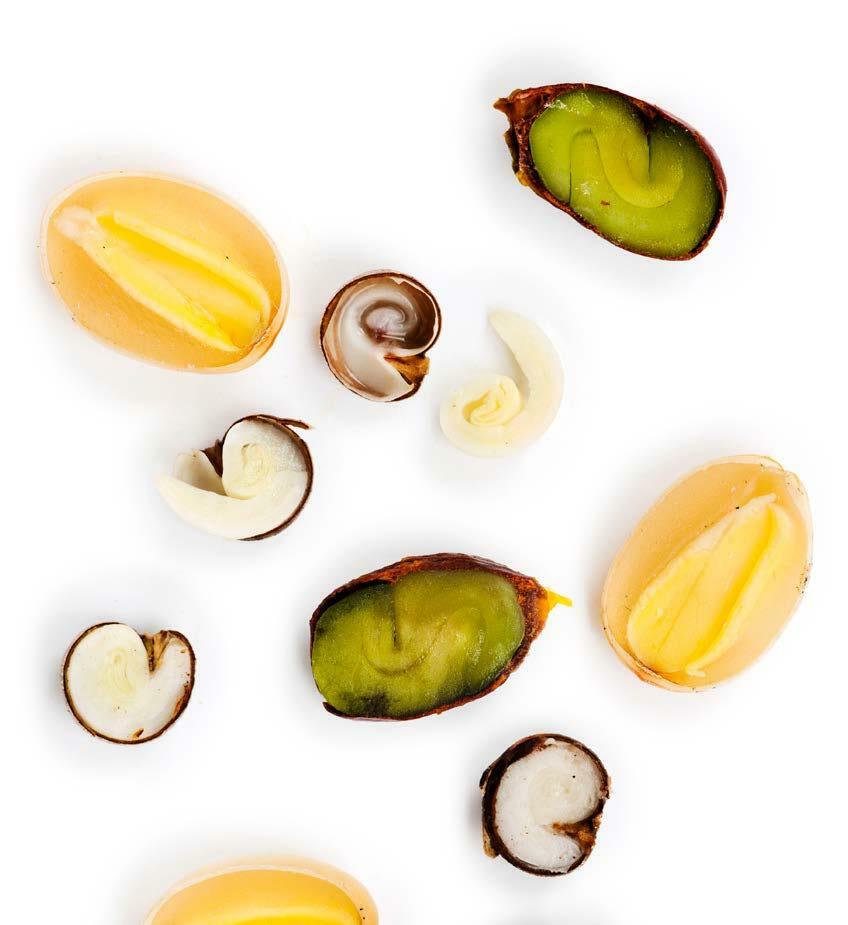
2 minute read
Virtual excursions & digital resources
Stage 3 Stage 3/4 SECONDARY EXCURSIONS
Growing Sustainable STEMs
ST3-2DP-T; ST3-4LW-S; ST3-5LW-T; MA3-2WM
Gardens in the city offer solutions to realworld problems of biodiversity loss, pollution, fresh food supplies, warming environments, well-being and much more. Through a Design Thinking approach students will develop an understanding of the challenges of keeping our cities green, explore a variety of vertical garden designs and work collaboratively to construct a sustainable school garden for a small space. This workshop engages students with 21st century thinking skills!
Survive and Thrive
ST3-1WS-S; ST3-4LW-S Examine a range of native plants from contrasting rainforest and arid environments, observe the amazing adaptations that allow them to grow and survive. In research teams, conduct a scientific investigation and complete scientific illustrations, making connections between the physical conditions in which plants live and their ability to survive and thrive. Shaping Places: Environmental Warriors
GE3-1,2,3,4 Students become Environmental Warriors as they explore, investigate, and communicate the features and characteristics of the local ecosystem in the Botanic Garden. They will collect data, discover external and human influences on the ecosystem, and complete a mapping exercise. They will also engage in a stakeholder roleplay to present their arguments on the use of fire to manage the ecosystem. Water Shaping Places
GE3-1,2,3,4; GE4-1,2,3,5 Students will learn the value of water, how water interacts with its environment and the importance of sustainable management. Through using an interactive river model, students gain an understanding of how rivers work, different components of river systems and how natural and human actions affect them - particularly in an urban context - and how we can apply sustainable environmental management practices to our water systems.
Stage 4
Purposeful Plants and Adaptations
SC4-1VA, SC4-6WS6, SC4-7WS7.1, SC4-14LW
Investigate a range of native plants and their adaptations whilst discovering the latest scientific conservation and ecosystem research happening within our Australian Institute of Botanical Science.
Botanical Burglary
SC4-15LW, SC4-6WS, SC4-7WS There has been a theft of a valuable plant specimen at the Botanic Garden and we need your help investigating the crime. Apply your scientific skills to examine evidence and help us find the culprit. You will learn about forensic botany, recent advancement in this field and how the Botanic Gardens used some of these methods to solve one of Australia’s most infamous kidnappings.
Water Management
GE4-1, GE4-5, GE4-7 Students will explore how topography and landscape features affect water movement travels and develop an understanding of sustainable water management practices. They will investigate how water flows through the Garden and undertake water quality tests to examine how natural processes and human interference can alter water quality. Students will also participate in a role play debate. Food in Australia
FT5-7, FT5-10, FT5-11, FT5-12, FT5-13; 5.1, 5.2, 5.3, 5.8 The settlement of many different cultural groups in Australia has led to our cuisine becoming an exciting fusion of ingredients and flavours. Students will investigate, prepare and taste bush foods to discover how the Aboriginal diet began to evolve when the first settlers farmed food on this land.
First Contact
HT4-3, HT4-4, HT4-6, HT4-7; 4.3, 4.4, 4.7, 4.8 Explore the impacts of British colonialism on the first Australians, particularly the traditional owners of the Sydney city area, the Gadigal. Students will discover how Aboriginal people used the land and plants prior to first contact and then investigate the plants and seeds brought by the First Fleet and their uses and value at Farm Cove.




